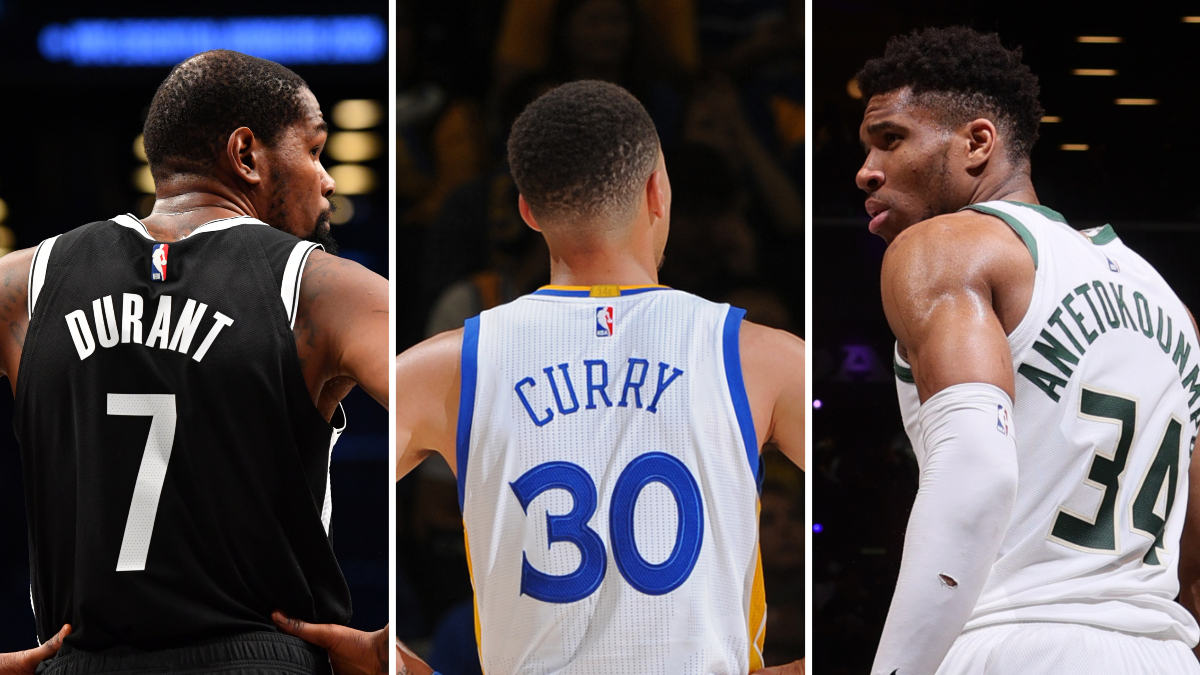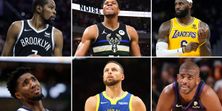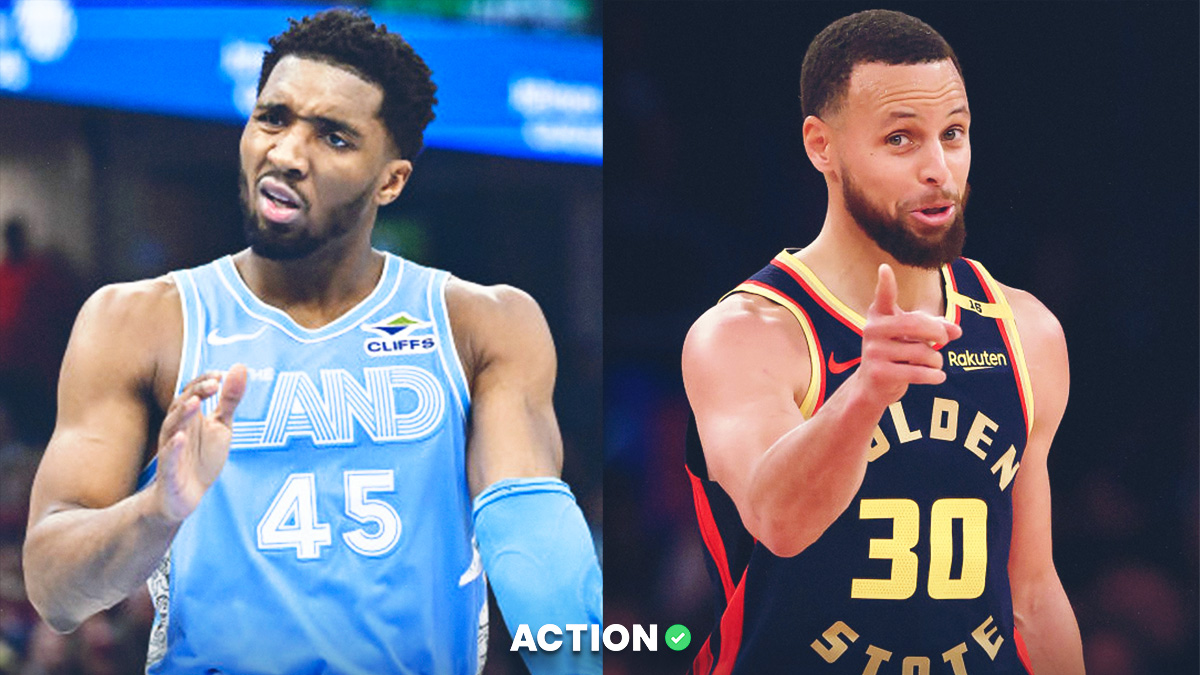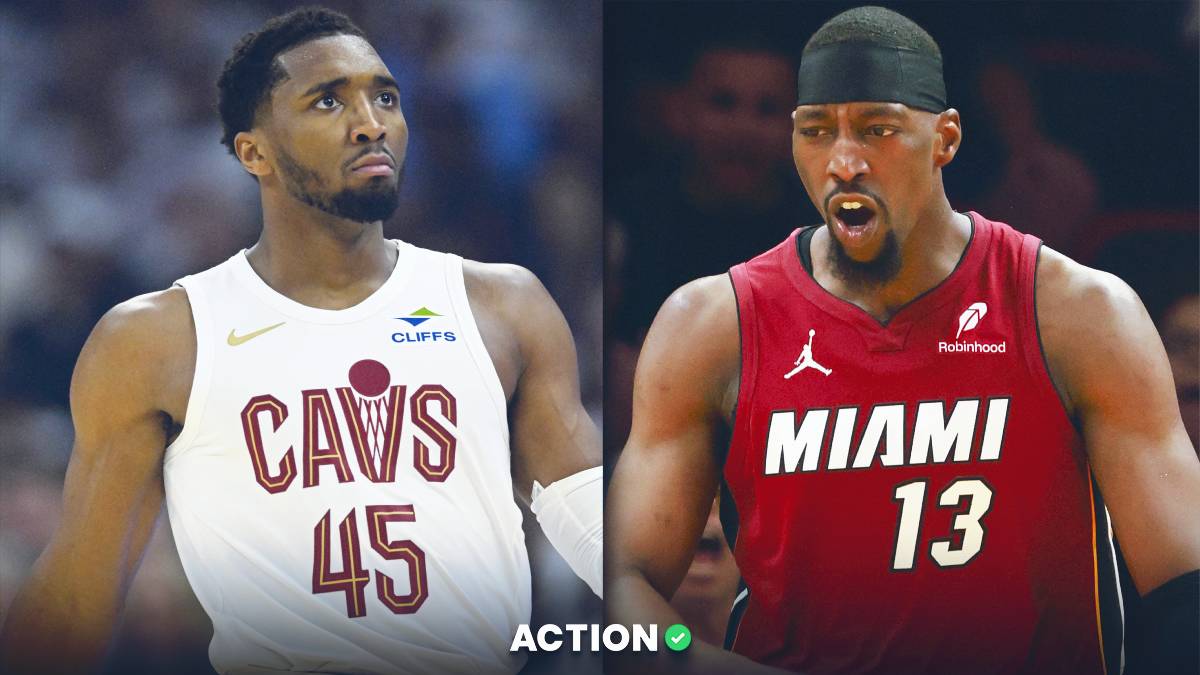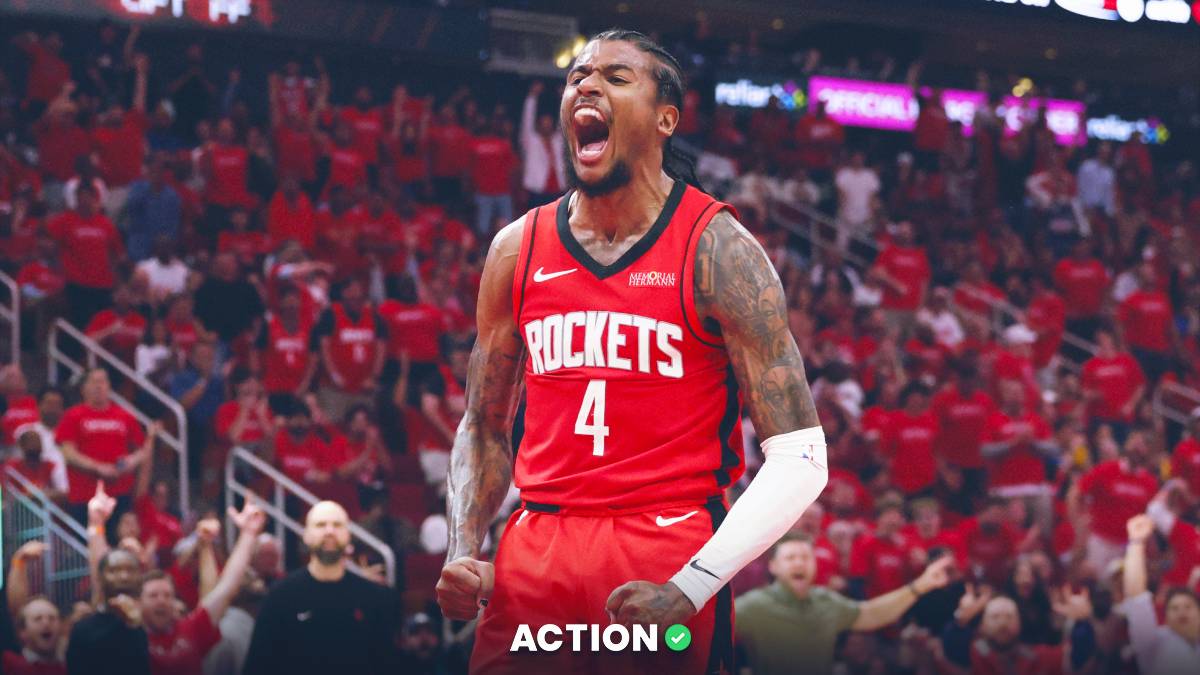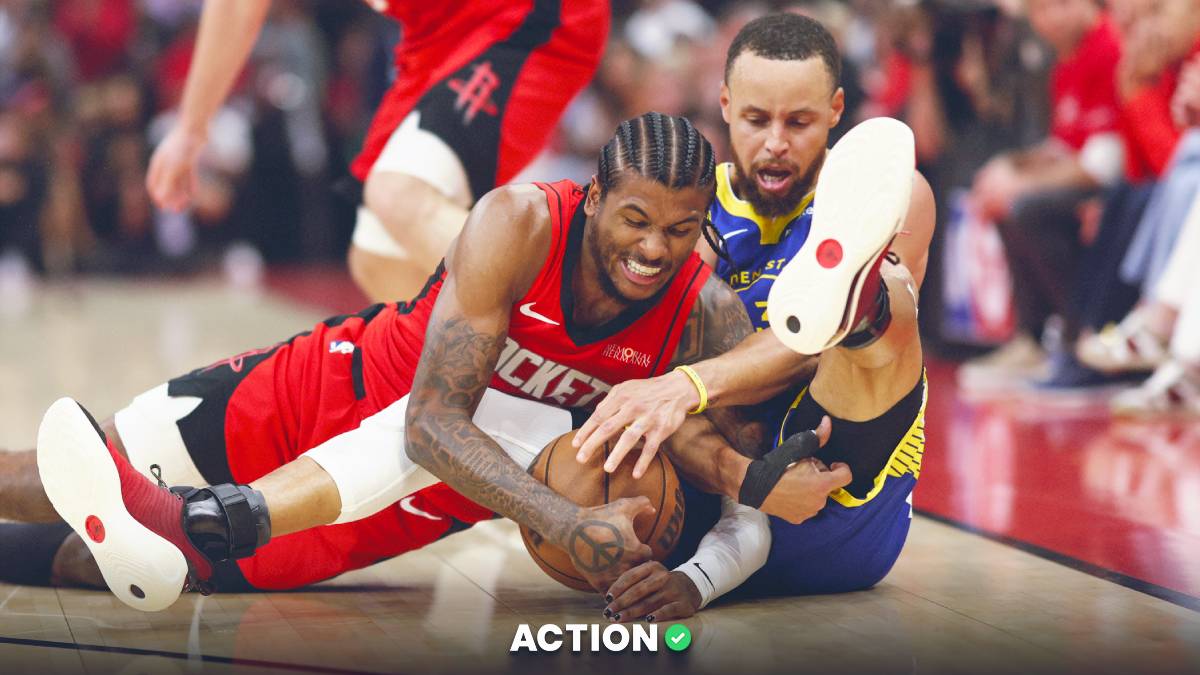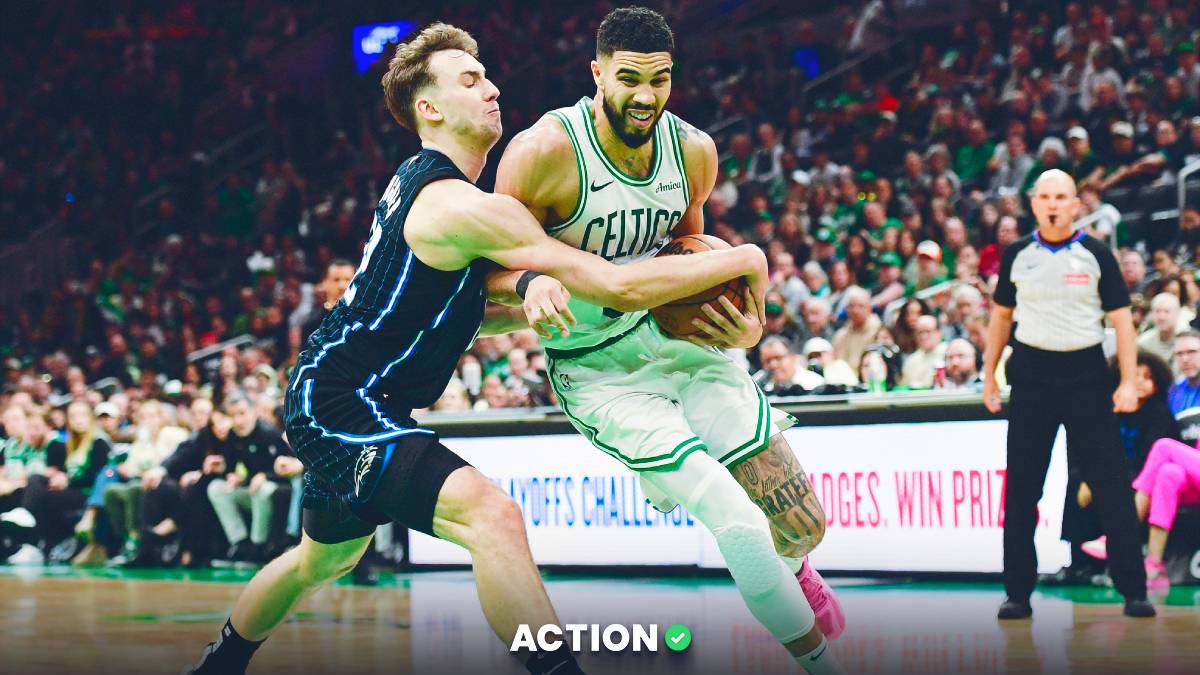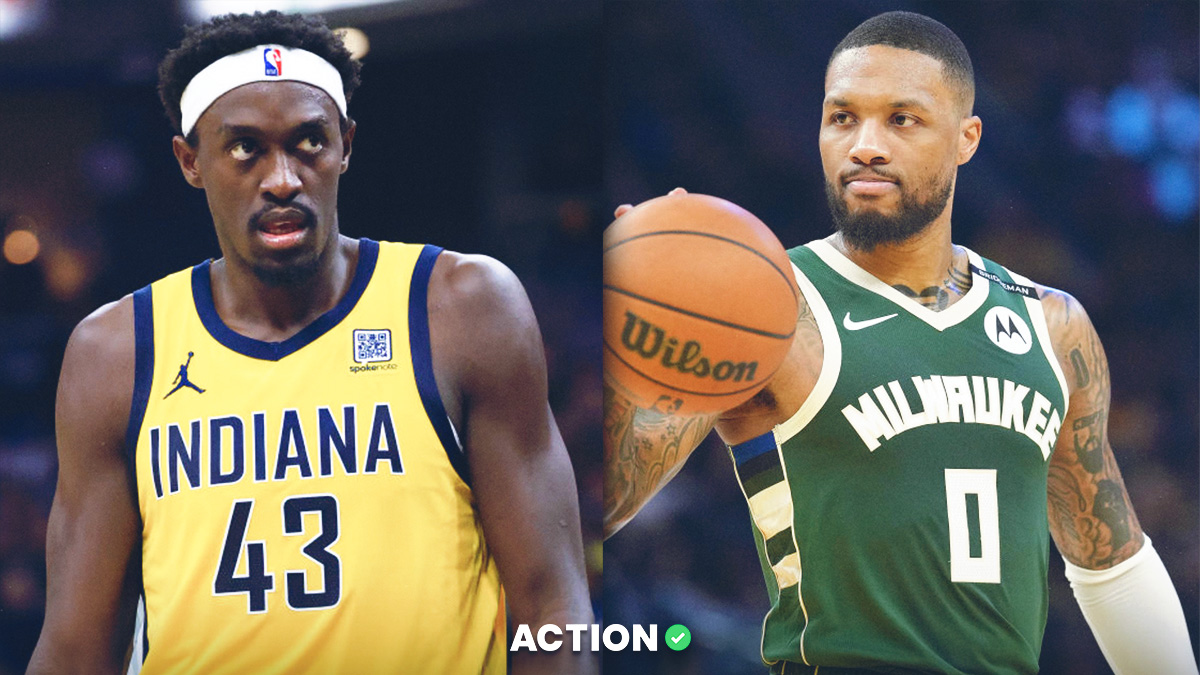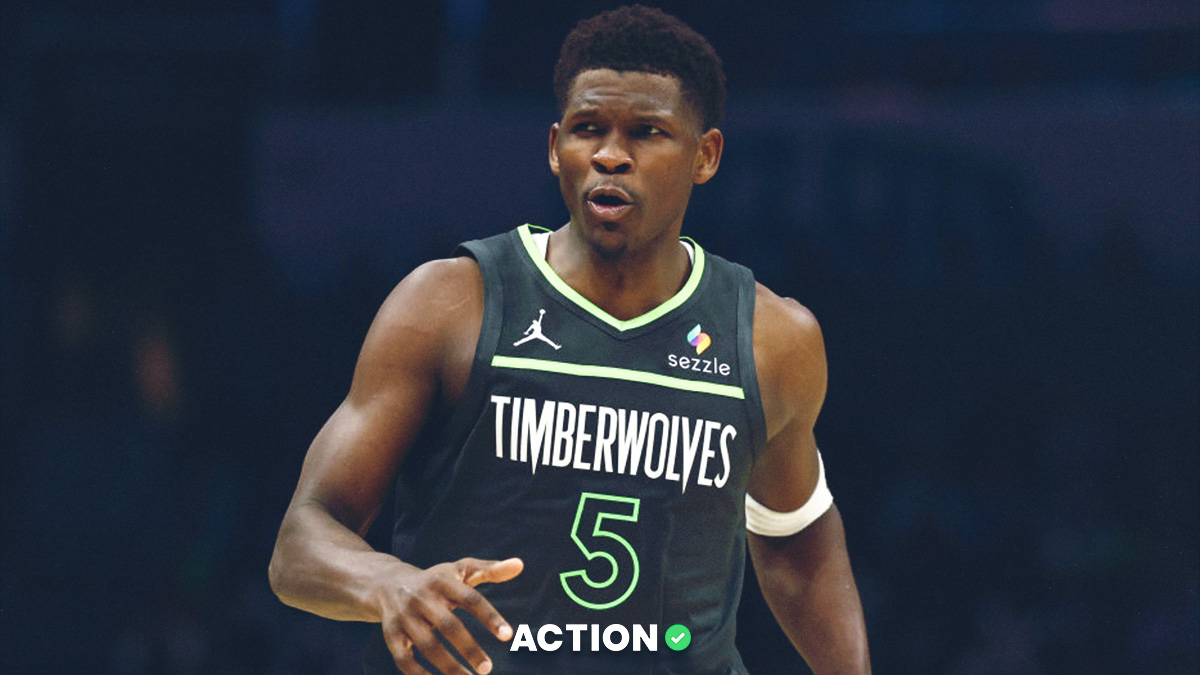Oh, hello there! Good to see you! Did you enjoy the offseason? We actually got to have one, this time around.
Anyway, as you know, the NBA season is right around the corner and …
Yeah, yeah, yeah … who is your pick to win MVP?!
What is this, the lottery? Do we pick numbers out of a hat? One guy? With no games played? That is not how we bet MVP here. We build a position on a number of players from a probabilistic situation and then build on it throughout the season.
The NBA season is six months long. If I’m going to tie up money that long, I want several avenues I can add on to if my priors work out, or if they don’t in a hedge effort. Always be hedging is my motto.
The reason professional bettors often don’t commit much in futures is the combination of risk and the fact it ties up resources for six months (or more, in the event of title futures).
However, as someone who covers the MVP race from start to finish, there’s value in establishing a position early and adding on to it as the season evolves. Last season, back in January, we wrote that Nikola Jokic had sleeper value.
By March, he became the favorite, and by April he was the odds-on favorite. Because I track it the entire year and have done more work on MVP than any other subject in my career, I don’t bet it once or twice, I’ll bet continuously starting in preseason with longshots and then add on.
OK, so who are your picks to win MVP?
Yeesh, so pushy.
I go the opposite direction of Brandon “There’s Only One Bet To Make” Anderson. I’ve bet 10 different players for MVP. Now, some of those are small bets on extreme longshots (that 0.5 units play on Zion Williamson is not looking great right now).
Here’s a look at the different bets I have made:
Giannis Antetokounmpo (+800, BetMGM)
The voter fatigue monster has been satiated. Antetokounmpo finished fourth last season in a year where the Bucks slipped from the No. 1 seed to third and in which his points and rebounds took dips from the prior two seasons.
Now, after winning the NBA Finals — capped by his video-game-final-boss-like 50 points in Game 6 — Giannis has two narrative boosts coming his way.
First, he has a legitimate claim to the best player in the league. Durant remains the presumptive title holder, but you can make a substantive case that Antetokounmpo’s two-way influence is greater than any player. His championship validates him at that level in a way the two prior MVPs did not.
It’s a regular season award, and voters try hard to keep that in mind when selecting. But taking a guy who gets bounced and getting avalanched with “IS THIS YOUR MVP LOLOLOL” tweets is not fun.
Now those concerns are quelled after the title.
The Bucks likely learned something from the playoffs. We’ve seen teams make the leap after winning the championship. They know how to play together better than they did to start last season. Mike Budenholzer teams tend to be in the 50-plus win range and it's closer to 60 with the Bucks.
Antetokounmpo doesn’t have the injury concerns of the other candidates at the top; he’s a tank. This is inherently a parlay on the Nets under and the Bucks’ over. If the Bucks win 55 or more games and the Nets don’t, then he will be among the top three vote getters. It’s a good place to start a position.
Stephen Curry (+900, BetMGM)
This ain’t tough. Curry earned the second-most first-place, second-place, third-place, and fourth-place votes last season. His points total wound up third on account of Joel Embiid’s second-place advantage, but it was a strong showing. Curry did this on a team that lost in the play-in tournament and barely finished eight in the West.
Now, the Warriors have added veteran talent to help them win now — Otto Porter, Nemanja Bjelica, Andre Iguodala and Langston Galloway — rookies Jonathan Kuminga and Moses Moody, who should contribute on some level, and oh, yeah, Klay Thompson is scheduled to return sometime around the start of the calendar year.
Curry won the scoring title last year, averaging 5.3 made 3’s per game. Had he played a full-82 game schedule, missing the same percentage of games that he did last season in the COVID-wrecked schedule, he would have finished with the second-most made 3’s in NBA history behind his 2016 season … all while missing 11 games.
He’s accepted as the most impactful offensive player in the league. And maybe, honestly, of all time. That doesn’t mean he’s a better player than your GOAT of choice, just that his teams have been better with him on-court than any team ever relative to how they played without him.
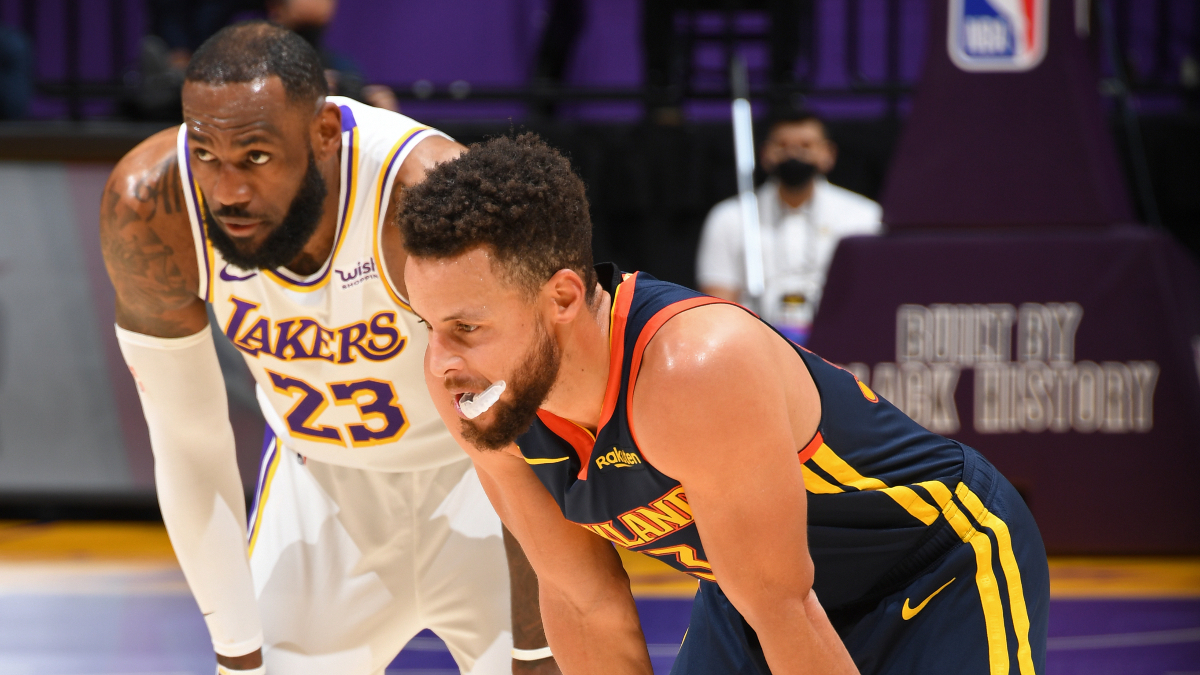
Curry is a media darling headed into his 30's; voters want to vote for him. He inspires and sparks the imagination of fans and writers. Curry feels like an MVP in the way that Nikola Jokic did not, despite how much better Jokic’s season overall was last season.
If the Warriors finish with a top-three seed? Curry is absolutely going on the list. If they finish with the best record in the West? Curry is winning this hands down.
There’s been talk amongst the Warriors of needing to first bolster the roster and then perform better because they can’t “rely on Curry to have that kind of season again.”
But why? He’s the best shooter of all time. The Warriors are shooting more 3’s than ever, averaging a bonkers 50 3-point attempts per game in preseason.
Curry’s brilliance may extend to his floaters and off-ball exhaustion, the way he warps the defense with gravity, but ultimately, all of it springs from the fact he’s the best shooter, ever, and that’s not changing any time soon even with better talent around him.
(By the way, here’s a hot take: every “greatest” description comes with the implicit understanding of “so far.” Whether you think LeBron James or Michael Jordan is the GOAT, it’s because you think “in the history of basketball, none have been greater.” When I say Curry is the best shooter of all time, I don’t mean the past. I legitimately do not believe anyone will be a better shooter, at any point in the future and certainly not in the past, than Curry. His shooting skill is the only one to make me lay the odds against the concept of infinity.)
To me, Curry’s value is absurd and he should be much shorter.
Kevin Durant (+700, Caesars)
This was a late addition. My prior going into the preseason was that Durant would suffer from unreasonable expectations and the superstar problem. Voters have been reluctant to reward the best players on super teams with more than two All-Stars.
James won back-to-back in 2012 and 2013 but that was when he was unquestionably the best player in the league and, honestly, without peer. The Durant Warriors never had a major vote getter. James did not win in 2020. There’s a bias against having that much supporting talent, fair or not.
The Nets have the highest preseason win total and will top all the preseason title predictions. Topping those expectations to secure the award may prove difficult. He’s not just battling the rest of the league, he’s battling the standard the basketball world has set for the Nets.
However, events have shifted and evidence has compelled me to bet Durant.
For starters, Kyrie Irving’s prolonged and indefinite absence knocks them down to two All-Stars with Durant and Harden. This would still probably be too much, but there is a rather firm consensus that Durant is the clearly better player than Harden. Not only that, but there’s a strong argument that Durant, not Antetokounmpo, is the best player in the league.
The best player in the league doesn’t always win the MVP, they don’t even win the award as often as they should — shout out LeBron — but they do pick up a number of them and Durant only has one such award, from eight years ago.
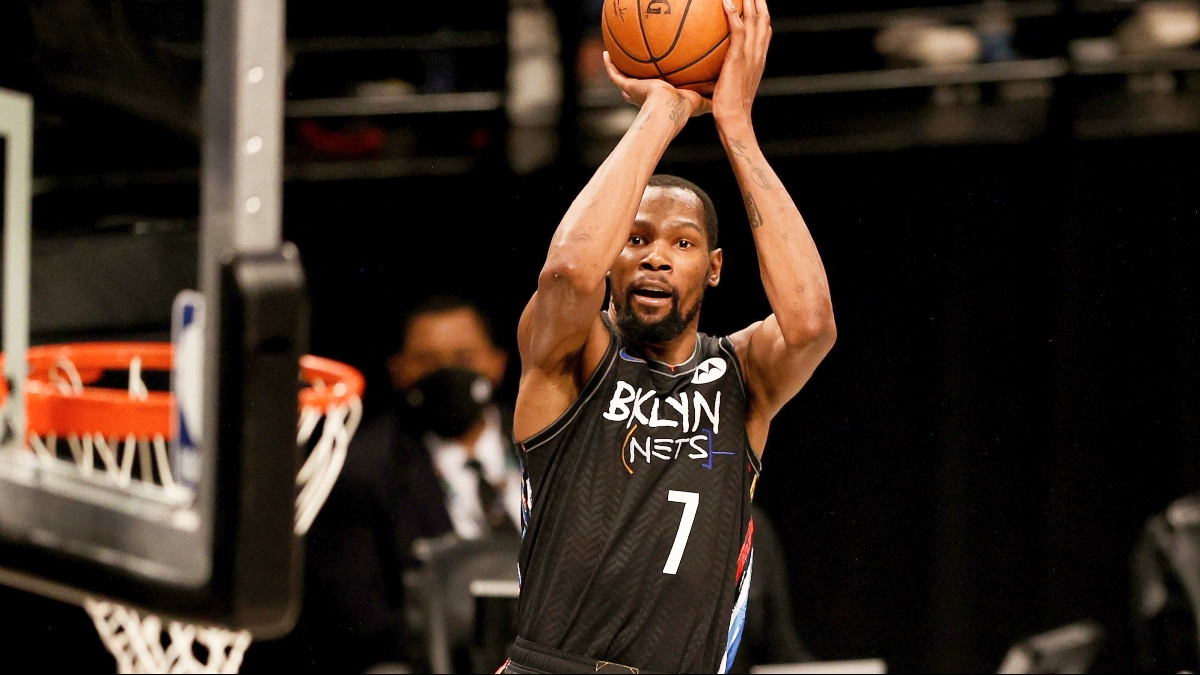
When I conducted the preseason straw poll, I asked voters “Who do you expect to be in the conversation when April rolls around?” asking for three such names. Durant led all vote getters, appearing on 75% of the ballots.
The voters seem ready for the Nets to be the story of this season, and if they live up to it, especially if Irving is out, then Durant may simply be crowned in one of the few best player on the best team seasons.
I don’t know what stat line gets it done for Durant. He was 27-7-6 on 57-45-88 splits last season in just 35 games. He’d have to be closer to 30 points with other similar numbers and the Nets would have to make a mockery of the regular season, which they can absolutely do.
Will the minor injuries that plagued him last year as he returned from a torn Achilles bring him down? Will he be able to generate the kind of stats he needs next to Harden, let alone if Irving decides to get the jab and returns? Will the Nets really go hard enough for a top seed or breeze through easy enough without trying to get enough wins?
I have doubts and concerns, but not enough given the twisting Irving saga’s impact on the potential narrative for him, the straw poll results, and this number still being at least 7-1 at some books.
It’s down as low as +550 at some places, so shop for the best line, but taking the consensus best player in the world is not a bad choice.
You mentioned longshots?
Yes, I have bet some players who I could see having monster seasons. Zion Williamson was among them, before the foot surgery and all the bad vibes around the Pelicans. I found him at +4000 and for one of the most monstrous players in the league, I liked the value. I set that money on fire, basically. You live, you learn.
I also bet Zach LaVine, which my Action cohort Brandon Anderson thought was certifiable. He’s not totally wrong. The Bulls would have to vault into top-two seed contention and LaVine would have to be better by a magnitude than last year, which was itself a huge leap for him.
I took the flyer with the intent mostly of looking for a cash-out opportunity should his odds shorten considerably after a surprising Bulls run, which I think is on the table.
In more serious news, I bet Jayson Tatum and Trae Young on a similar principle: If you believe there’s a vacuum after the Nets and Bucks in the East caused by the Ben Simmons situation, then whichever team fills that gap may wind up getting MVP momentum, especially if one of the Nets and Bucks slip as well.
Young is heliocentric, the entire offense built around his production, and the Hawks are playoff proven now. Tatum has the advantage of being a top-level two-way player and his best stretches certainly seem MVP level.
Ultimately, I don’t recommend these longshots unless you’re taking my approach of building a position while looking for cash out opportunities late in the season. They’re longshots for a reason and while fun, I haven’t put nearly the same kind of money behind them as the top three.
What are your liabilities in the market?
I haven’t bet heavy on Luka Doncic or on LeBron James at all, those are the two players I’m most concerned about.
Doncic is still roughly +450 at most books, and did appear on the third-most ballots in our straw poll. I believe I’ll still have a good chance of getting value on him later in the season. I have questions about the Mavericks with Jason Kidd as coach. If the Mavs jump out to the best record in the league, the value is going to evaporate because Doncic will have the numbers.
The MVP preseason favorite has gone 4-6 in the past 10 years, which puts implied odds value on Doncic at +450 (18%). However, non-LeBron favorites have gone 2-6 (Russell Westbrook 2017 and Antetokounmpo 2020).
The voters are desperate to give James a fifth MVP. He’s been in the conversation several times the past few years and would have been in the discussion last year (and in my opinion, probably wins) if he hadn’t been hurt.
I’m staying away based on him missing serious time with injury in two of the past three seasons and the presence of Westbrook suppressing his raw statistical production relative to the other candidates. Then again, he's LeBron and not having him as a part of my position is vexing.
When should I bet on MVP?
That depends on what your goals are. Are you looking to hit a bigger number and then not worry about it? Or are you looking at betting before the season plays out and then as it does?
I will tell you the MVP market doesn’t mature quickly. There are some misnomers about the race to consider.
The first is that nothing before All-Star matters. This is the biggest lie. It’s not that post-All-Star performance doesn’t matter. It does, the voters are as susceptible to recency bias as anyone. A close race can be decided by a late surge, but the start of the season counts just the same for the statistical averages and totals that will be examined.
I wrote in late January last season that Nikola Jokic had value at 10-1 even then. My 10 best plays at the end of the month had Jokic first, Embiid second. In December of 2019, I wrote that Giannis was head of the pack, he won easily.
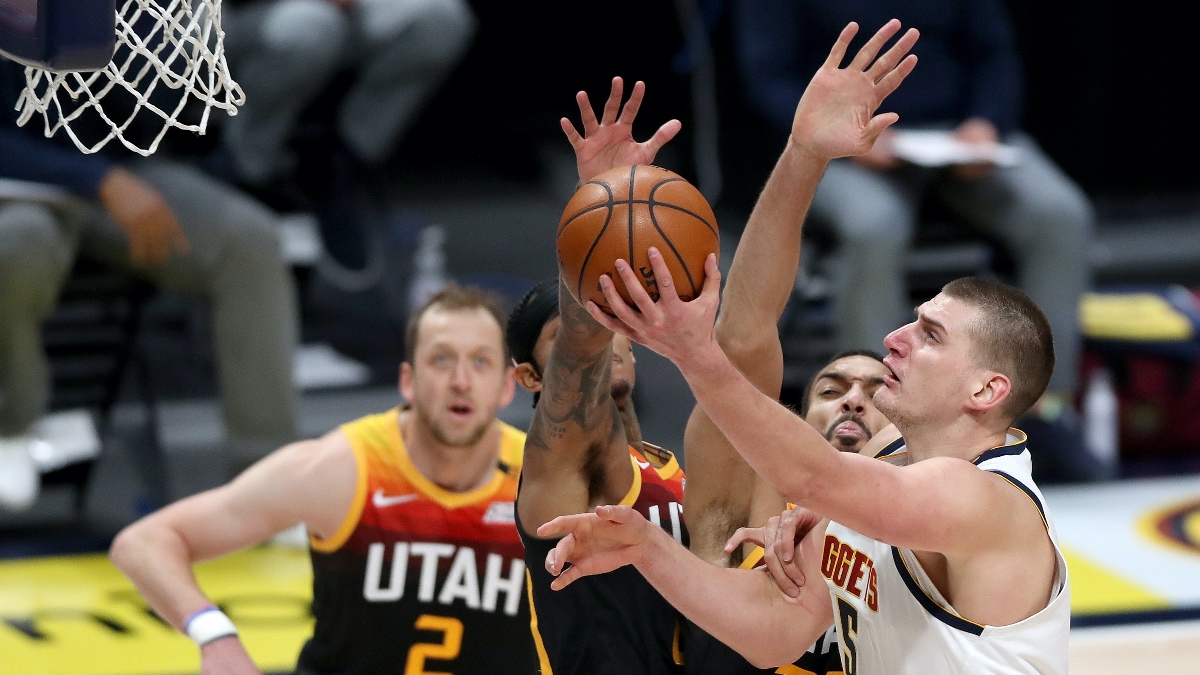
You can find value much earlier than people think. You don’t have to wait until March or April to bet MVP. In fact, much like with game lines where the market moves sharper before tip, by March and April the margin for error is much tighter but the value is much smaller.
You’ll know by December who is in the lead for MVP. The conversation will be all about how it’s too early, but by Dec. 15, teams have played over a third of their season. Injury risk remains high, but standards of play and team performance have been set.
I’ll be betting throughout the season based on line odds and player performance, but I’ll definitely be betting twice before Christmas.
By All-Star, and I’m not kidding here, it’s usually decided. Not always; in 2017, a late push from Westbrook was the deciding factor. By the All-Star break, Harden was the best value. The narrative push in a razor-tight race was the difference.
By All-Star Weekend this season, teams will have played 60 out of 82 games. If a players is injured right after All-Star and misses the rest of the year? That’s a bad beat.
Bear in mind that voters tend to coalesce around one candidate by the end of the year. Since 2009, every MVP winner has held at least 89% of the total votes. Even in the super-close 2017 season, Westbrook picked up 93%. The reason this matters for voters is that by All-Star you should not be betting against the favorite.
As always, this is probabilistic.
I’m not saying someone can’t win, and circumstances might be that I’m even advocating for someone who isn’t the favorite. But the trends suggest that there’s a clear winner and by All-Star you have enough of a resume.
What should I look for to find MVP Value in-season?
Look at All-NBA caliber players whose seasons take an early dip. While there’s value as early as November based on good starts, we saw the Nuggets start out 1-4 last season and be .500 over the first month, but Jokic’s performance checked all the boxes. If you have confidence in a team rebounding from a tough start and their metrics check out, that’s the play.
A good tool to use that showed up last season is Estimated Plus-Minus. All-in-one metrics have a whole host of problems for evaluating players, but the MVP winner was top-two in EPM in seven of the last eight seasons.
You need 50 wins at a minimum, and most seasons, you need a top-two seed. There are outliers, Westbrook being the most notable, but the trend is pretty clear for team success being tied to the winner.
A good indicator is on-off differential in net rating. That’s a team stat, not an individual one, but if a team is winning its minutes with a candidate by a considerable margin but their overall record is underwhelming, there’s a good chance that will turn around since those players play the majority of minutes and outlier bad bench performances usually regress as the season goes on.
MVPs are usually a certain age; Brandon Anderson noted that 18 of the 22 MVPs since 2000 were between 24 and 28 years old. You’ll notice I’ve got positions on Steph Curry (33) and Kevin Durant (33). I would say that these players are generational talents, and those tend to break the models.
I’m not as sold on the age restrictions for MVP candidates, but the evidence is what the evidence is. Raheem Palmer noted that only 13 MVPs in league history were 30 or older, and none since Steve Nash in 2006.
The trick is really to recognize when the momentum is shifting in a direction and ask whether the team’s performance is sustainable. With Doncic and Durant, if their teams just absolutely roll out to gaudy records, the value will evaporate.
But it’s a six-month season, and surprises are always in store.


